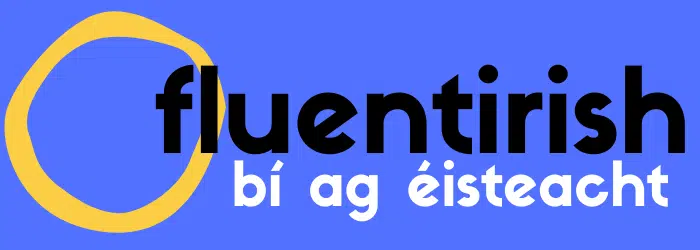Best Irish Language Podcasts ☘️: Learn Irish Gaelic By Listening!
Best Irish language podcasts in 2021 – and why they are a great way to learn and improve your Irish Gaelic skills!
Best Irish Language Podcasts: Like many emigrants from Ireland (and of course there are many millions of Irish people throughout the world – whether new emigrants or from many generations ago), my own level of Irish Gaelic has gone into decline in recent years.
I was an enthusiastic pupil while at school and despite having chosen another route of study at university, I did work each summer in the Donegal Gaeltacht as a ceannaire – which is a form of team leader (great days indeed!). It was during these summer courses that my Irish Gaelic speaking skills was at its best – as I was speaking the language every single day.
While my written Irish was always somewhat dodgy, by the end of the 8 weeks in the Donegal Gaeltacht each year I could understand virtually everything and (with the odd mistake) express myself adequately at all times. How I wish I knew about the best Irish language podcasts at that time to keep my listening skills up!
>>Check out the latest podcasts on FluentIrish.com – and start improving!
Knowledge of a language, however, is not something to be taken for granted. It requires practice. 12 years ago I relocated to France for work reasons. When it came to my language abilities, this had two main consequences; 1.) I began to focus all of my efforts on learning French (maybe having a negative impact on my Irish language skills, and 2.) Opportunities to speak Gaelic were dramatically diminished – as you would expect.
Having recently found a group of like-minded ‘Wild Geese’ in the city where I live, we put together our own ciorcal comhrá – i.e. a conversation group. Most of our members are in exactly the same position; living and working in France we have all mastered one foreign language in addition to English, all have a very solid ‘base level’ in the Irish language, some would even have spoken fluently at one time….but after many years on French soil we are all very, very rusty. We would be best described as intermediate (B2) level speakers. Check out the video below on the European language grades – and the TEG system for Irish language learning.
As much as regular conversation is helping, we have all been exploring the various Irish language podcasts available online. In particular, we have been looking for Irish Gaelic podcasts specifically for intermediate, or higher, level speakers. Several of us work in the education sector, and our renewed interest in Irish is intended to be a relaxing and interesting pastime more than “schoolwork” so our goal is to avoid podcasts that are essentially strict lessons on grammar and instead focus on listening and conversation.
Of course – some of the best content in the Irish language is the great RNAG podcasts.
We’ve been listening to a number of podcasts recently and drew the following conclusions:
Bitsize does exactly what it says on the tin. This is a podcast aimed at absolute beginners, a lot of the discussion is in English and Irish phrases are explained and introduced gradually. The topics are timely and interesting….but again the level is very basic so it was of limited interest to intermediate level speakers. Bitesize is definitely a good starting place for those just discovering the language however.
The tricky step is bridging the gap from this level of language learner to fluency such as RNAG.
 Culturlann
Culturlann
The aptly named “Culturlann” (Cultural Centre) offers a variety of resources for people who are not solely interested in the Irish language, but also in Irish music or culture. The level is rather basic at present although Culturlann does plan to offer intermediate and advanced level lessons at a later date. At present the podcasts are more in form of lessons rather than discussions about everyday or topical subjects.
Beo Ar Éigean
Beo ar Éigean is an Irish language podcast by RTE. Interesting topics and current affairs are dealt with and new editions are uploaded regularly. The podcast is not aimed at learners, but is a podcast aimed at native and fluent speakers of Irish. The pace is natural (i.e. rapid when it’s not your first language).
For our own purposes, we viewed Beo ar Éigean as a challenge. Some episodes were easier than others but, overall, we saw its level as our ‘goal’; we’d like to be fit to listen to it with ease within a year or two…but we are not quite there yet!
Club Leabhar: Irish Language Book Club
This podcast, as its name would suggest, aims to encourage listeners to read books in Gaelic. It features reviews of books originally written in Gaelic and of books translated into Irish from various other languages. The standard of Irish is quite high but those speaking articulate well and speak very clearly.
Every year a huge number of books are published in the Irish language and aimed at all levels – from learners to fluent speakers looking for a great novel to read. You should check out this podcast to discover the choice available.
The Winner…
For our own purposes (i.e. as intermediate, or ‘rusty’ speakers), we found that the “Fluent Irish” podcast was the most useful. Unlike most other Irish language podcasts, this one provides an indicator of language level (as per the European Union’s own scale; C2, C1, B2, B1, …) together with an indication of which dialect of Gaelic the podcast is in.
The episodes address interesting and topical subjects and while the Gaelic is at a natural pace, the speakers make a real effort to articulate their words and to speak clearly using crisp and clear Irish. While not a classic lesson format, they do take the time to explain more complex phrases or idioms – without ever slipping into English.
This podcast is relatively new so episodes are still limited in number, but we hope to see its library expand rapidly in the near future!
Over the next few months – we will be publishing lots of new content – at varying levels and in the different dialects – such as Ulster, Munster and Connacht.
>>Which level?: Find out which level of spoken Irish you understand!


 Culturlann
Culturlann

